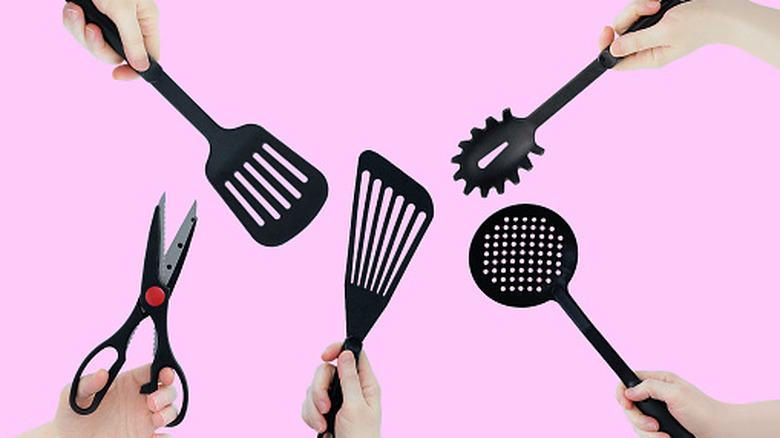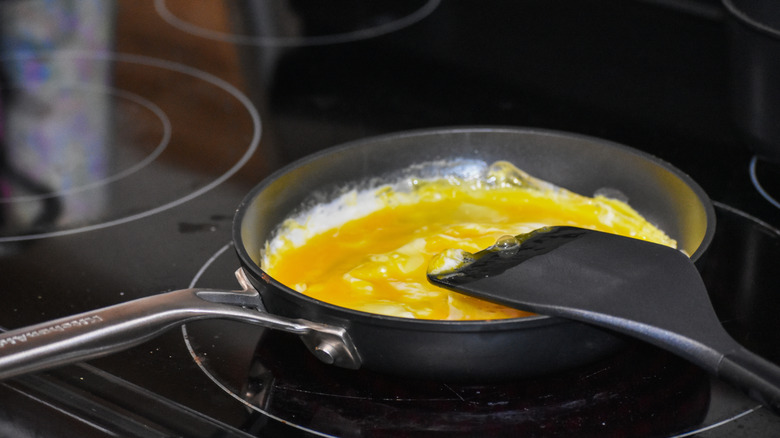It's Time To Ditch These Plastic Utensils
We may receive a commission on purchases made from links.
If you've ever fried eggs in your favorite style using a black, plastic spatula, served some quick, creamy pasta with a black-handled server, or stirred a simmering pot with a plastic basting spoon, it might be time to take a closer look at what's actually in those utensils. These everyday kitchen tools may look sleek and durable, but an October 2024 study from the scientific journal, Chemosphere, revealed they contain some unwelcome guests — chemicals you definitely don't want near your food.
So, why specifically black plastic utensils? Items like spatulas, spoons, to-go lids, and even sushi trays are often made from recycled black plastic, a material commonly sourced from discarded electronics like TVs and computers. While reusing plastic sounds eco-friendly at first, there's a hidden downside. Many electronics contain flame retardants and other chemical additives to prevent overheating and fire. Your Xbox needs that protection, but your kitchen utensils? Not so much. Unfortunately, these flame retardants don't just vanish during recycling and can remain in the plastic, ultimately making their way into the utensils you reach for every day. When exposed to heat as you cook, traces of these flame retardant chemicals can transfer from your utensils to your food — and from there, into your body, where they could start causing harm.
What are the health concerns with black plastic utensils?
In their previous lives as computers, televisions, or game consoles, black plastic often contains flame retardant chemicals like decabromodiphenyl ether (decaBDE) to prevent overheating. Studies have linked flame retardants like decaBDE to hormone disruption, which can impact growth, mood, and metabolism. Some of these chemicals are also carcinogenic, meaning they increase your risk of developing cancer. Others have been shown to affect the nervous system, with potential impacts on memory, learning, and behavior. In terms of reproductive health, they're linked to developmental issues and possible fertility challenges.
It's unsettling to think that these chemicals could transfer from your utensils to your food, especially if you're using these tools every day. When it comes to protecting your health and that of your loved ones, consider opting for safer alternatives. Stainless steel or wooden cooking utensils offer durability and peace of mind, without any extra chemicals tagging along. So, maybe let black plastic sit this one out and reach for a more food-friendly option the next time you're whipping up a delicious pot of pumpkin and spice soup.

